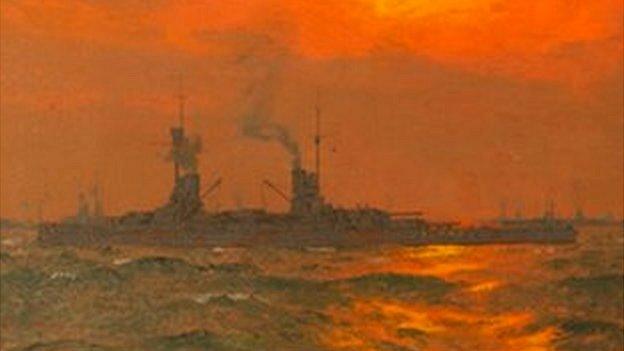Service marks 100 years since Scapa Flow navy scuttling
- Published
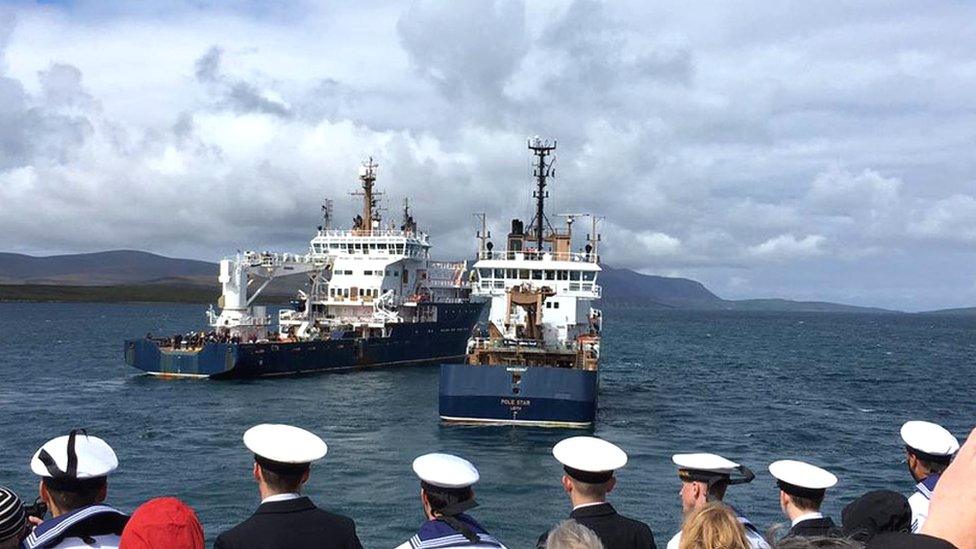
A service was held above the sunken wreck of the warship Dresden
A poignant service has been held to commemorate the centenary of the scuttling of the German High Seas Fleet in Scapa Flow.
A service was held above the sunken wreck of the warship Dresden.
During the service a bell recovered from the wreck of the Von der Tann was rung by the grandson of German commander Admiral Ludwig von Reuter.
Allow X content?
This article contains content provided by X. We ask for your permission before anything is loaded, as they may be using cookies and other technologies. You may want to read X’s cookie policy, external and privacy policy, external before accepting. To view this content choose ‘accept and continue’.

The mass scuttling was the single greatest loss of warships in history.
The nine German sailors killed that day were the last to die during World War One.
The final peace treaty was signed a week later.
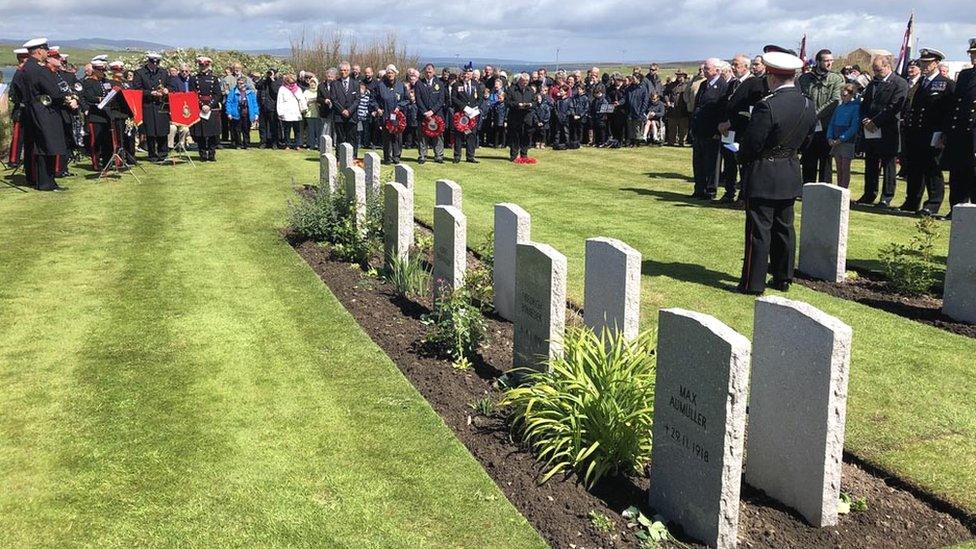
A service of commemoration was held at Lyness Royal Naval Cemetery
On Friday, wreaths were laid by the two most senior naval officers present - Rear Admiral Stephen Haisch, from the German Navy, and Captain Chris Smith, Royal Navy Regional Commander for Scotland and Northern Ireland.
Navy divers from Britain and Germany then laid wreaths on the hull of the Dresden.
'Side by side'
Rear Admiral Haisch said: "I am deeply touched by the heartfelt commemoration service that was organised by the people of Orkney.
"Commemorating what happened here 100 years ago also brings to mind how far we have come since those dark days. How from enemies we, the United Kingdom and Germany, have become true friends.
"Today, our nations stand side by side on the world stage, upholding the joint values we believe in."
3D animation recreates Scapa Flow scuttling
A 'Scapa 100' programme of events is being held to make the centenary.
Removed 'stain of surrender'
It includes talks by experts, and performances by the German Navy and Royal Navy musicians.
A senior German officer declared at the time that the act had wiped away the "stain of surrender" from the German fleet.
During the 1920s and 1930s, many of the ships were lifted from the sea bed by commercial contractors and broken up.
The seven wrecks that remain are now classed as scheduled monuments.
Earlier this week it emerged that four of the vessels, which are now owned by a retired diving contractor, were being sold on eBay for more than £800,000.
- Published21 June 2019
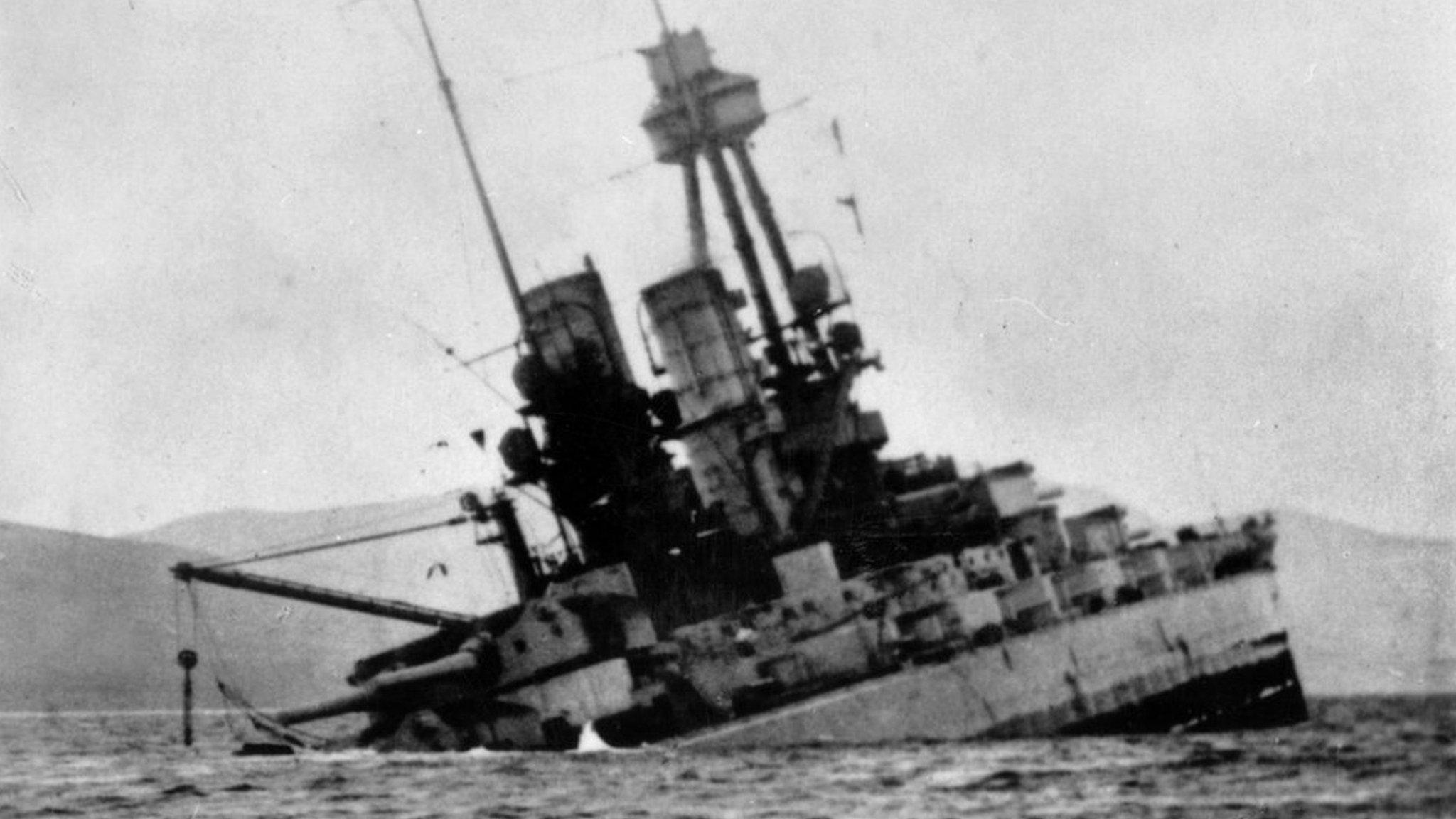
- Published19 June 2019
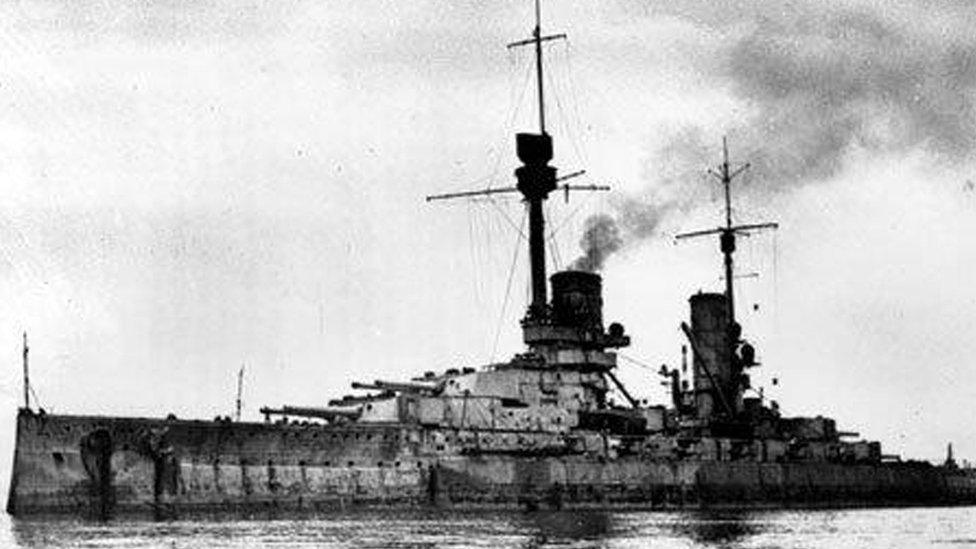
- Published24 May 2019
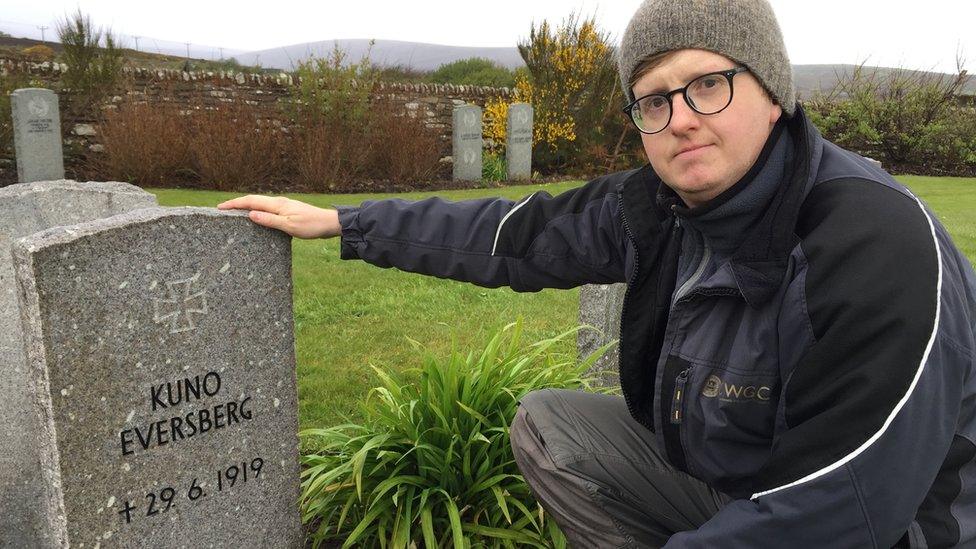
- Published8 August 2017
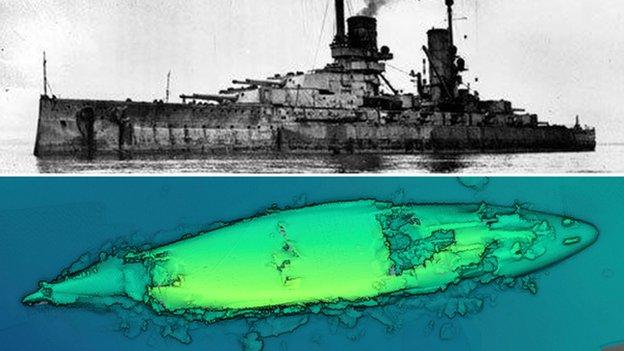
- Published19 June 2015
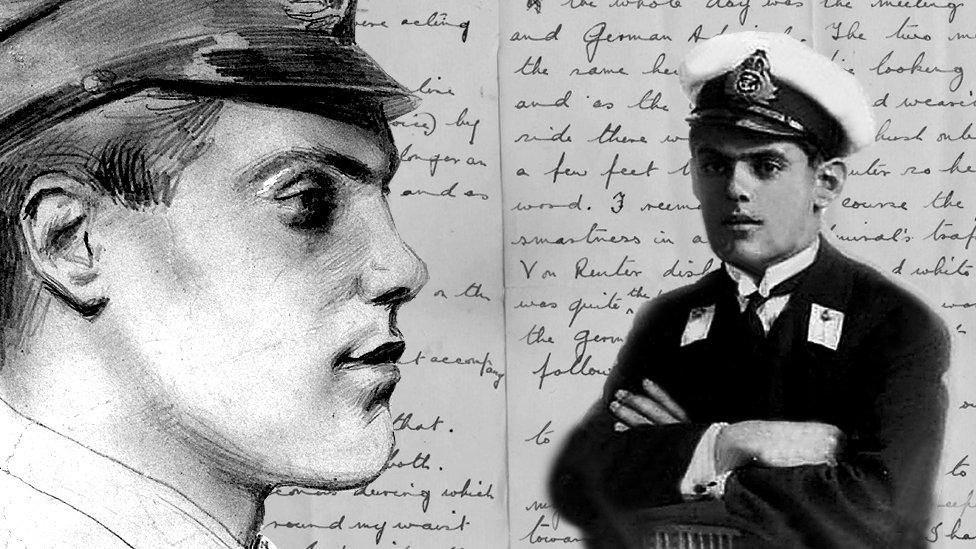
- Published20 November 2014
